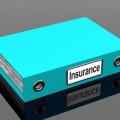Many Americans struggle with depression, anxiety, or another mental health issue on a daily basis. When that struggle becomes intense enough to affect your ability to carry out day-to-day work duties, you may be eligible for disability benefits through the Social Security Administration. While it’s not a given, there are some cases where the SSA recognizes depression as a severe enough disorder to award benefits. If you think you might qualify, keep reading. We’ll walk you through how the SSA will determine whether depression qualifies for disability benefits.
9 Ways Depression Can Qualify for Disability Benefits
While the SSA does not have a specific listing for depression in its Blue Book, depression is considered under Affective Disorders as part of Section 12.04. There are several criteria the SSA will consider to determine whether your specific diagnosis of depression qualifies for disability benefits. We’ve listed a few below.
- Depressed Mood
- Loss of Appetite and/or Significant Changes in Body Weight
- Lack of Interest in Most Activities
- Inability to Concentrate
- Lethargic or Agitated Movements
- Dramatic Decrease in Energy
- Suicidal Thoughts
- Feelings of Guilt or Worthlessness
- Sleep Loss
The Social Security Disability Insurance program is designed to provide financial assistance to American workers who are unable to maintain gainful employment due to an illness or medical disorder that renders them unable to work. To qualify for SSDI benefits, you must have previously worked and paid into the SSDI program to earn work credits. The SSA administers the Supplemental Security Income program, which helps provide financial assistance specifically for disabled Americans with little to no income, regardless of their work credits.
Depression is a serious mental health issue that can impact everything from your mood to your energy level, sleeping habits, and ability to function. In some cases, the SSA may consider severe depression a qualifying affective disorder for SSDI benefits. Let’s explore when that might be the case.
Now let’s take a closer look at some of the criteria the SSA uses to evaluate your claim when you apply for SSDI benefits. In general, you must demonstrate at least four of the following criteria in order to be approved for SSDI disability benefits. Any of these symptoms can be either chronic or cyclical in nature.
Depressed Mood
Depression often is marked by low, or “blue” moods that last several days. A dark mood, or depressive episode, may be cyclical, or may include feelings of sadness or hopelessness that become overwhelming and last for weeks – and in some cases, even years.
Loss of Appetite or Significant Changes in Body Weight
Depression often can affect appetite, leading to your eating either too much or too little. When these changes are dramatic enough to produce visible changes in body weight, this can be considered a severe symptom of a depressive disorder.
Lack of Interest in Most Activities
It’s fairly common for those suffering from a depressive disorder to lose interest in most or all of the activities that used to bring them joy. This can also include work-related tasks or activities that you used to enjoy doing but now can’t muster enthusiasm for.
Inability to Concentrate
Many depressed patients lack a sense of focus and don’t have the ability to concentrate, which can greatly affect your ability to perform work-related tasks. During a given work day, the ability to understand instructions, use judgment to make decisions, learn new skills, and apply knowledge to a given task are important. If major depression keeps you from this type of mental functioning, then your disorder may qualify as a disability.
Lethargic or Agitated Movements
Depression can lead to both feelings of lethargy or movements that appear agitated when paired with more manic, or bipolar disorder episodes. The impairment of physical movements can also include a slowing or slurring of speech, and agitated movements might include pacing or hand-wringing.
Dramatic Decrease in Energy
Low energy is a key symptom of depression, which often can lead to extreme difficulty in making it through an entire work day – which may qualify as a functional limitation. SSA reviewers will consider the extent to which your decrease in energy prevents you from being able to do your job.
Suicidal Thoughts
One of the most serious and concerning symptoms of a depressive disorder is the occurrence of suicidal thoughts. No matter the state of your disability claim, if you find yourself thinking suicidal thoughts, you should reach out to your therapist, a friend, or other trusted resource immediately.
Feelings of Guilt or Worthlessness
A depressed person may feel hopeless and sad, along with feeling guilty for feeling the way they feel. This combination can often make it difficult to concentrate on work-related activities.
Sleep Loss
If you’re suffering from a depressive disorder, especially when paired with anxiety, you may experience intense insomnia, or its counterpart, excessive sleeping. In either case, a healthy sleep cycle may be out of reach, which makes concentrating on work activities difficult, if not impossible.
Please note that there is no specific test for an affective disorder like depression or anxiety, either of which often is considered an invisible disability. Your medical team will need to document everything from your family’s medical history to your drug and alcohol intake and the overall pattern and severity of your symptoms. You should also provide a detailed account of any treatment you’re receiving and its results. An SSA reviewer will determine, based on the medical evidence you’ve provided, whether your depression symptoms fall anywhere on a spectrum between mild to severe or seriously limiting.
How to Prove Depression Is a Disability
If you believe your clinical depression qualifies you for SSDI or SSI disability benefits, you’ll need to go through the full application process to be assigned a disability rating. You can choose at this point to begin the process on your own or to work with a qualified disability attorney. Ultimately, you’ll need to show that your depression disability is serious and consistent, and that you’ve been undergoing treatment for it for at least two years.
Medical documentation is extremely important to making your case. Make sure to contact everyone on your medical team to make sure you’ve filled out all necessary forms and provided all signatures to allow them to share medical information with the SSA on your behalf. You also can ask for copies of all your medical records if you’d prefer to submit those on your own. But the bottom line is that you’ll have to share your protected health information with the SSA so that their reviewers can make an appropriate determination about your disorder.
Important Documentation
The types of documentation that are most helpful to your case may include a comprehensive psychiatric report and a well-documented psychiatric medical record showing the history of your depression and resulting impairment. The SSA will want to see a detailed psychiatric record that outlines all treatments attempted, plus all types of medication and therapy, and the efficacy and side effects of each treatment.
The SSA will need to see evidence that helps reviewers understand how your clinical depression affects your daily activities and your ability to hold a job. It helps your claim when you are treated by a mental health professional rather than just your family doctor – the SSA will want to see a comprehensive list of all medications you take, at what dosage, and whether you experience any side effects. If you see a therapist or psychologist or social worker, their expert opinion of your impairment will be valuable, so you’ll want to make sure to include their contact information.
The more thorough and comprehensive your medical evidence, the easier it is for the SSA to approve your claim. As part of your application, the SSA will ask you to complete an Activities of Daily Living questionnaire that details how your depression affects your day-to-day life. Many applicants don’t take the time to fill this out in full detail, but the more information you can provide, the higher your chances of being approved early in the process. Take the opportunity to explain in detail how your depression affects your daily life, especially if you’re suffering any of the symptoms outlined above, like trouble sleeping, loss of appetite, or an inability to focus.
In addition to showing at least four of the disability criteria outlined earlier, you also must show that you have trouble in at least two of the following areas of daily life: comprehending information, taking basic care of yourself (including activities like cooking or paying your bills) or interacting with other people. All of these basic skills affect your ability to successfully navigate the workplace, not only in terms of completing your work tasks but also in interacting with your co-workers and supervisor.
In general, a successful SSDI or SSI disability benefits claim will show the following:
- You’re either unable to work or earn less than $1280 per month
- You have a qualifying disability – in this case, depression will have been established via the criteria stated above
- You’ve been unable to complete your job duties for at least one year because of your disability
- Your disability prevents you from doing a different type of work based on your age, education, work history, and skills
- For SSDI, you have worked enough in the past to have earned sufficient work credits
You can apply for Social Security disability benefits in person at your local SSA office, or you can submit your information online or by phone. If you decide to apply in person, you may need to call ahead to schedule an appointment. Once you’ve applied, the SSA will review your claim and then send you a letter to let you know the reviewers’ decision. In many cases, it takes between three and five months to receive notification of the SSA’s decision. At this point, you may choose to accept the SSA’s decision – for better or worse – or you may begin the appeals process. If you decide to appeal, you may want to work with a qualified Social Security disability attorney to help guide you through the lengthy and complex process.
If the SSA determines that your clinical depression qualifies you for SSDI disability benefits, you can remain enrolled for disability benefits as long as your depression keeps you out of work. If your health improves and you’re able to go back to work, your disability benefits will end. The SSA will continue to regularly monitor your case to determine whether disability benefits still apply to your situation.
Is Depression a Disability?
Sometimes, depression can be so disruptive that it prevents a person from being able to carry out the day-to-day tasks associated with their work. When this is the case, depression can qualify you for SSDI disability benefits. Depression also may be considered a secondary disorder along with a physical disability in some cases.
If you think you may qualify, you should carefully review the criteria we’ve provided here, which can help you make an informed decision. And if you’re still not sure whether you should apply, you may consider reaching out to an experienced and qualified disability attorney, who can help evaluate the strength of your claim and provide counsel about the next steps toward getting the benefits you need.



